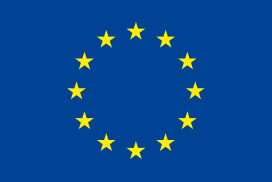10 minute read

What is one main issue to be changed so more women can reach their full potential?
This question bothered us for a long time. Not just because in the tech area lack of women is significant. We see this constant gap in many other work spheres.
We want to break the bias — not only in March but in every month of the year. And we are going to make it from this very first step — by asking women what they need.
Read our report and break the bias with us!
We ran a global survey with 100 women from Poland, Czech, Germany, France, Denmark, Netherlands, Spain, UK, USA, Canada, Brazil, Mexico, India, and Singapore about professional leadership growth. The study brings to light the prejudices and barriers that must undergo a transformation for women to develop their potential fully.
We asked many questions. One of the most important was: What is one main issue that needs to be changed so more women can reach their full potential? There is some good and bad news. But let’s start by discovering the top three areas for change.

The good news is that the main barrier which needs to be overcome by women to help them grow is self-confidence. It is something each of us can take responsibility for. And it is much easier to do things that are under our control.
The bad news is that all other barriers survey participants identified are stereotypes and societal biases. Eliminating them is an adaptive problem, and there is no easy solution to solve it.
Survey Background
According to McKinsey, only 6.1% of current business leaders are women. There is still much work to be done to create a culture that takes full advantage of diversity. As I plan workforce development and inclusion initiatives at A4BEE, I want to recognize the barriers that hinder women’s career advancement. The same survey was run externally and internally.
We received 100 responses from women at different career stages (minimum of one year of work experience). All women working at A4BEE provided their answers as well. Initially, the idea was to understand better how to improve our internal inclusion culture to make it competitive for new employees. Finally, I decided to share the results with the broader public. I hope that the results will help all of us have a better grasp of what holds women back from career progression.
Understanding women’s perceptions of barriers in career development are the first step to helping them grow. Read this report to discover conscious and unconscious biases and break them one by one.
Good News
Career plan
Women know that career planning is essential as it helps to create a detailed path for a professional future. The process of career planning involves identifying our strengths and researching fields in which we can excel.
71.1% of responders declare that they have specific career plans. That proves that the majority wants to be professionally active and plan their professional development according to their goals. In the case of the A4BEE team, the result is even higher but does not reach 100%.

Support from my direct management
Relationship with direct management is important for all employees, regardless of their seniority or position. 62.2% of responders feel supported in their career development by direct management. And 82.4% of A4BEE women have visible support from direct management.

Support from within my organization
73.3% of respondents feel supported by their organization. In the case of A4BEE, 88.2% of our female population thinks like that. In both surveys, more women feel supported by their company than the first-line manager. This gap shows the excellent role of the company’s comprehensive program and initiatives.

Support from family & friends
Women have strong support from their close ones: families and friends. 93.3% of responders declare that they feel the help of friends and family. It would be great to step forward in self-confidence and learn what our talents are from our families and friends.
Networking
By regularly attending networking events and being active, we can develop a reputation for being supportive and reliable. If we share our knowledge and experience at such events, we also grow a reputation for being knowledgeable. Only 36.4% of the respondents view networking as optional, not strategic, to grow their careers. More than 60% of women know the importance of networking in career development. They see great value in expanding their network of professional contacts. Who we network with and their relevance to our career matters. We don’t have to network with everyone. And more and more women learned how to do that.

Bad News?
Good enough?
Self-doubt may prevent women from taking on worthwhile challenges and realizing their potential. 60% of women from the global survey tend to question themselves. They doubt their worthiness. They don’t acknowledge their accomplishments. They think that if they can do it, anybody can. The result for #tech_hive is higher — almost 90% of women doubt their value. At the A4BEE, there are 88.2% of women lack self-confidence. One of the interpretations of this result is that people from Central & Eastern Europe are less confident and have lower self-esteem than Western cultures like the US.
Even if you are not completely assured of yourself and your capabilities, it is important to appear differently. Starting with changing body language to reflect confidence. Walk with your head held high, make eye contact, keep your chin up, slow your movements, and stand up straight. The good news is that this change can make others believe in your confidence and change how you see yourself.

Branding & presence
68.2% of respondents admitted that they are often uncomfortable talking about themselves and what they bring to the table. And 100% of women from A4BEE share this feeling. Women are uncomfortable talking about themselves. As women, we must learn to articulate our strengths more often. We need to believe in them. One of the first steps toward that is to take charge of our own personal brands.
Proving value
70.5% of women admitted that they need to prove their value as an employee. They tend to overcompensate to demonstrate that they are adding value to the company. An objective, well-defined performance evaluation process could help with that. Enterprises should make efforts to make employee evaluation processes as free of subjectivity as possible. Feedback about the individual should be gathered from a variety of sources to get a less biased evaluation. Management should define clear metrics for progress, with objective markers of accomplishment, not subjective opinions. They can also educate people about stereotypes and prejudices. In A4BEE, this value is much lower. Only 58.8% of women share similar feelings, as described above.

Making the ‘ask’
Why is it hard to ask for help, especially at work? As many as 47.7% of responders admitted that they have difficulty expressing their needs. Almost half of the women in the workplace are uneasy about asking for help or what they want. This number is even higher for A4BEE. 64.7% of women in #tech_hive lack of courage to stand up and ask for help. They lack the courage to stand up and ask for help. Asking for help can make us feel vulnerable, and that’s not a comfortable position to be in. This is an important sign for us to make the workplace more collaborative and managers more sensitive to the voice of minorities.

RECOMMENDATIONS
⬡ Believe in yourself
When a woman starts to believe in herself, endless possibilities could open up. Here are 3 ways you can be more confident at work:
- Take responsibility for your career and work. No one else can do it for you.
- Begin to experiment more. Try something new. Don’t be afraid of being a beginner again.
- Find a mentor. Remember: confident people are happy to help. They remember the effort it’s taken them to get where they are today.
⬡ Career has no gender
The vital thing is to raise public awareness of the fact that gender should not matter in the professional context. We should instill in young people of both genders the importance of the concept of gender equality from an early age. Recent surveys indicate that over 100 years are needed to close the global gender gap. And it is a leader’s responsibility to build an inclusive working culture and not tolerate biased behaviors at the workplace. Raising awareness is the starting point.
⬡ Partnership matter
Women have great support from their families in self-development. But in many cases, they are overloaded with family & home duties. Those increased during the pandemic. What could companies do with it? Can we do anything? To fight those biases, we can run programs supporting parents of both genders: mothers and fathers, giving them equal opportunities to spend time with kids. Work-life balance programs and daily culture could help as well.
The vital thing is to raise public awareness of the fact that gender should not matter in the professional context. We should instill in young people of both genders the importance of the concept of gender equality from an early age. Recent surveys indicate that over 100 years are needed to close the global gender gap. And it is a leader’s responsibility to build an inclusive working culture and not tolerate biased behaviors at the workplace. Raising awareness is the starting point.
Summary
Despite troubled times, women feel more powerful than ever. Even if they still have difficulties talking about their strengths, they already recognize them and have clear career plans. To fully develop and use their potential, they need to change the labor market self-perception and companies’ support to achieve that. Sharing our successes and failures can help others to learn from our experiences. And because we need role models, for ourselves, our daughters and sons, and society, we should not be afraid of becoming one of them. Cooperation, asking perceived as strong suit not weakness, procedures for equal sharing childcare by female and male workers — are not simply Women-Day-answers for our pains. That is the agenda to use 21st-century competencies and adjust our mindset to modern times’ challenges and opportunities.
Change what you can; let it go if you cannot. And have the courage to break biases you observe and experience.







